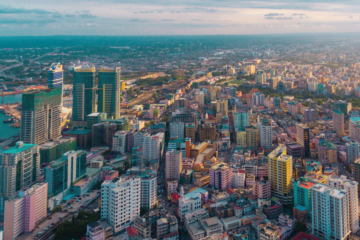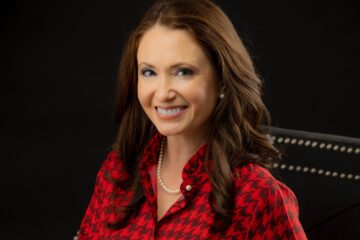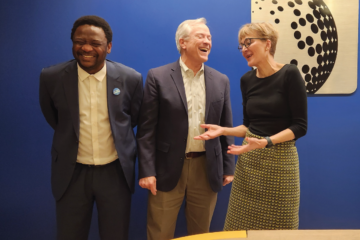
Date
December 15, 2015
Author
The Population Reference Bureau (PRB), the United Nations Population Fund (UNFPA), and the Union for African Population Studies (UAPS) brought together journalists and communications professionals from across sub-Saharan Africa for a day-long workshop Nov. 29 on the demographic dividend ahead of the 7th African Population Conference in Pretoria, South Africa.
The journalists with PRB staff.
The conference, held from Nov. 30 to Dec. 4, was themed “Demographic Dividend in Africa: Prospects, Opportunities, and Challenges.” In his opening address, Jean-Francois Kobiane, outgoing president of UAPS, highlighted the importance of achieving the demographic dividend despite the challenges a youth bulge presents.
“But it is also a unique opportunity for the continent to boost its economy and therefore its development through strong and inclusive social policies. Specifically, the change in the age structure of the population which will occur between one and two decades in several countries in Africa…will create what is known as a ‘window of opportunity,’ ” Kobiane said.
The demographic dividend is the boost in economic growth that can result from changes in a country’s population age structure. As fertility rates decrease, a country’s working-age population grows larger relative to the young dependent population. With more people in the labor force and fewer children to support, a country has a window of opportunity for rapid economic growth if the right social and economic investments and policies are made in health, education, governance, and the economy.
In the workshop, participants learned about the key concepts of the demographic dividend and to consider its relevance to local, national, and international news. During the training, Richmond Tiemoko of UNFPA and Kobiane underscored the regional and global commitment to harnessing a demographic dividend in Africa. They also discussed the media’s role as watchdog, to be able to report on issues relevant to the demographic dividend and its progress.
“This background helped to motivate the journalists, a number of whom had not known that education, health, economic planning, and governance, each have a part to play in advancing changes needed before a dividend may be realized,” said Marlene Lee, PRB program director, Academic Research and Relations.
She added, “Another motivating factor was the organization of parts of the African Population Conference as a consultation on the demographic dividend where a range of views were presented and debated.”
The journalists capitalized on the available research papers and PowerPoint presentations online, as well as seeking out presenters from their own countries. PRB staff received positive feedback on the workshop, and journalists were very enthusiastic about incorporating demographic dividend concepts into their reporting. Said one journalist, “I surely hope more journalists can be exposed to the DD [demographic dividend] concepts, but also to the world of scientific conferences. It is a whole world of untapped information out there.”
Below are links to some of their stories (updated):
- Joy Wanja Muraya, “Kenya Bets on Youth and Smaller Families to Grow“
- Catherine Mwesigwa Kizza, “Africa and the Demographic Dividend“
- Muluken Yewondwossen, “The Future of Africa’s Growth“
- Annie Payep, “Afrique du Sud : 7è conférence africaine sur la population“
- Isabelle Somian, series for Fratmat.info: “Dividende démographique: Des journalistes de l’Afrique se forment à Pretoria,” ‘M. Kobiané (Uepa): “Le dividende démographique doit être mieux présenté…,“‘ “Emploi jeunes: “50% des Ivoiriens passent 4 à 5 ans avant de décrocher un emploi,” and “CAP-2015: Des démographes rendent hommage à Nelson Mandela“
In addition, journalists also produced radio broadcasts and print-only pieces:
- Suzgo Chitete, radio broadcasts from Radio One in Malawi
- Salifu Abdul-Rahaman, “Ghana Needs to Mobilize Youth Into Productive Labor Force,” The Ghanaian Times
- Adrienne Engono, the Quotidiens Mutations (Cameroon)






